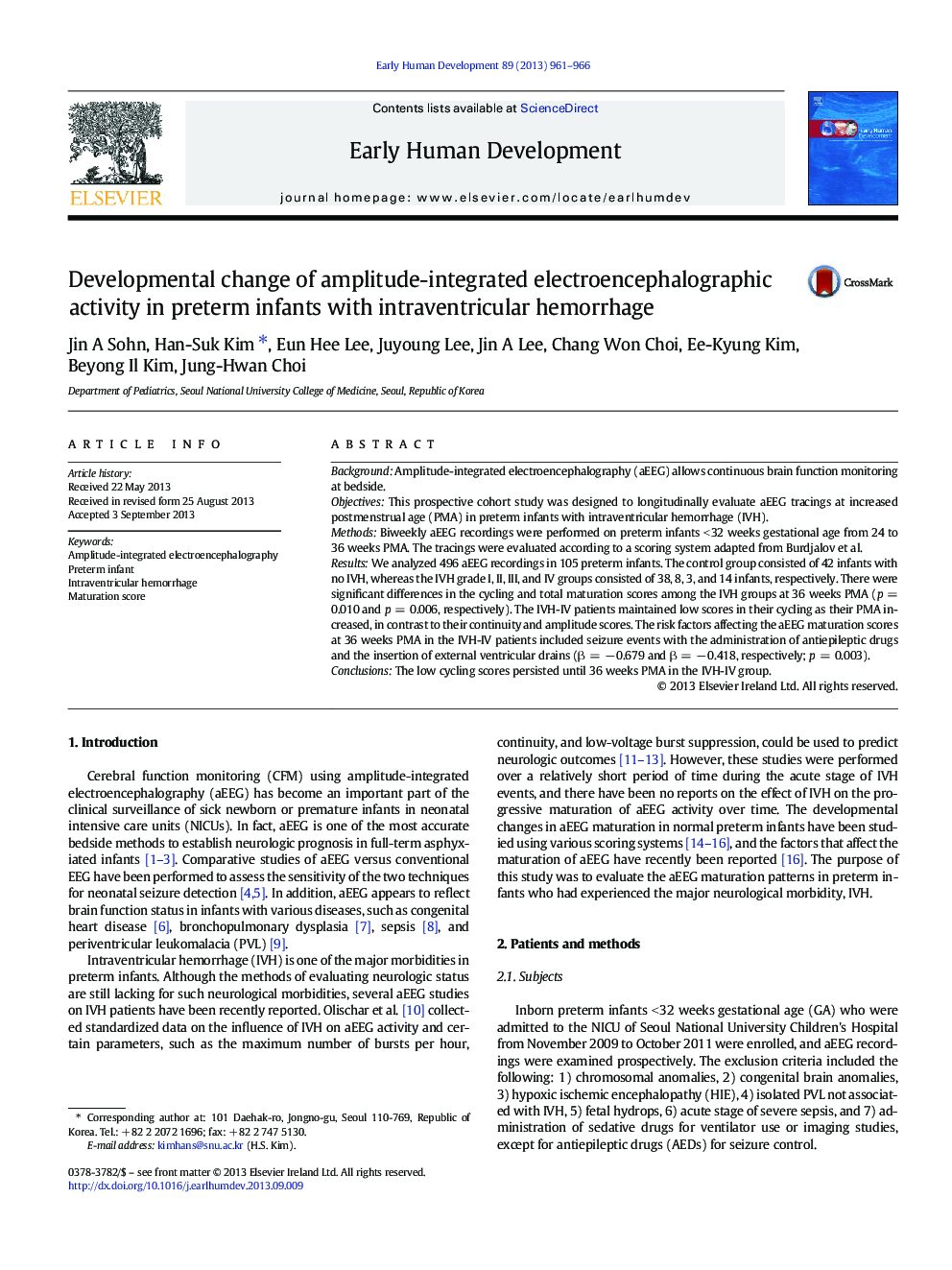| Article ID | Journal | Published Year | Pages | File Type |
|---|---|---|---|---|
| 6171920 | Early Human Development | 2013 | 6 Pages |
BackgroundAmplitude-integrated electroencephalography (aEEG) allows continuous brain function monitoring at bedside.ObjectivesThis prospective cohort study was designed to longitudinally evaluate aEEG tracings at increased postmenstrual age (PMA) in preterm infants with intraventricular hemorrhage (IVH).MethodsBiweekly aEEG recordings were performed on preterm infants < 32 weeks gestational age from 24 to 36 weeks PMA. The tracings were evaluated according to a scoring system adapted from Burdjalov et al.ResultsWe analyzed 496 aEEG recordings in 105 preterm infants. The control group consisted of 42 infants with no IVH, whereas the IVH grade I, II, III, and IV groups consisted of 38, 8, 3, and 14 infants, respectively. There were significant differences in the cycling and total maturation scores among the IVH groups at 36 weeks PMA (p = 0.010 and p = 0.006, respectively). The IVH-IV patients maintained low scores in their cycling as their PMA increased, in contrast to their continuity and amplitude scores. The risk factors affecting the aEEG maturation scores at 36 weeks PMA in the IVH-IV patients included seizure events with the administration of antiepileptic drugs and the insertion of external ventricular drains (β = â 0.679 and β = â 0.418, respectively; p = 0.003).ConclusionsThe low cycling scores persisted until 36 weeks PMA in the IVH-IV group.
